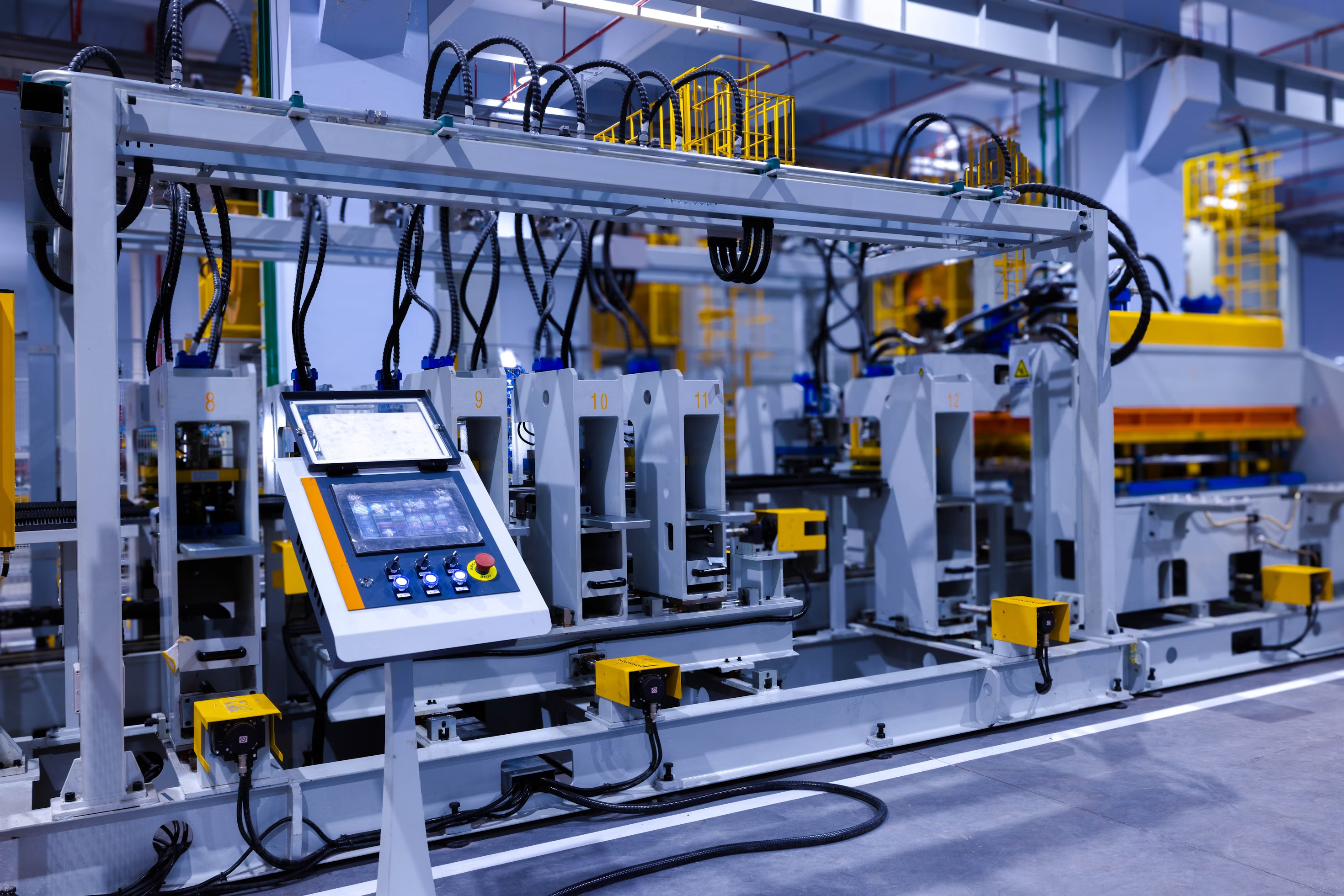The B2B manufacturing and wholesale sectors are undergoing a seismic shift - one so dramatic that businesses failing to adapt risk being left behind entirely. Digital transformation is no longer a competitive advantage; it’s the only way to stay in the game.
By 2025, 80% of B2B sales interactions between suppliers and buyers will happen in digital channels. This means traditional sales methods are rapidly becoming obsolete, and manufacturers must embrace a fully digital, streamlined approach. But it’s not just about having an online presence - B2B buyers are more confident than ever in making massive purchases digitally, with 73% willing to spend over $50,000 per order and 39% comfortable placing orders over $500,000. This shift demands robust, scalable, and frictionless ecommerce systems that deliver a seamless buying experience.
At the same time, rising costs are putting immense pressure on manufacturers. According to Deloitte, over 35% of manufacturers cite transportation and logistics costs as one of their biggest challenges. Without a relentless focus on operational efficiency, reducing costs, and streamlining data, businesses simply won’t be able to keep up.
To succeed in this rapidly changing landscape, B2B manufacturers must rethink their operations from the ground up. Success now depends on the ability to integrate smart technology, automate processes, operationalise and democratise key data sources and create a seamless end-to-end customer experience. The question isn’t whether digital transformation is necessary - the question is whether manufacturers can afford to wait any longer.

The four game-changing technologies reshaping B2B manufacturing
As B2B manufacturing undergoes a seismic shift, staying competitive requires more than just a digital presence - it demands investment in the right technologies. While manufacturers are increasing their spend on connectivity and technology products, the real question is: Which innovations will truly drive efficiency, customer loyalty, and revenue growth?
Here are four game-changing technologies shaping the future of B2B manufacturing.
1. AI and machine learning: automating and personalising B2B commerce
Artificial Intelligence (AI) and Machine Learning (ML) are no longer futuristic concepts; they are actively transforming B2B sales, pricing, and customer engagement. From predictive analytics to real-time pricing models, AI is creating more efficient, personalised buyer experiences.
- 73% of B2B buyers are willing to spend over $50,000 per order online, with 39% comfortable with orders over $500,000 - AI-driven pricing models ensure they receive tailored pricing based on loyalty and volume.
- 57% of B2B buyers complete most of their purchasing journey before ever speaking to sales (Gartner). AI-powered dynamic content and recommendation engines ensure businesses engage them at the right moments.
- Conversational AI is enabling seamless transactions through chatbots, messenger apps, and even voice commerce, reducing friction in purchasing.
However, AI should be used wisely - 70% of B2B buyers find thinly personalised AI content detrimental to their experience (Forrester). The key is combining AI efficiency with human-led branding and strategy.
2. API-driven integration: the rise of fully automated B2B purchasing
B2B transactions are shifting toward automation. Increasingly, purchasing processes require no human involvement at all. Through API standards like OCI (Open Catalog Interface) and EDI (Electronic Data Interchange), businesses can connect their ERP systems directly to suppliers, triggering automated orders with a single click - or no click at all.
- Manufacturers selling to wholesalers can seamlessly integrate procurement systems, reducing delays and human errors.
- Automated inventory management ensures supply chains operate smoothly without manual intervention.
- Headless commerce and microservices architectures allow businesses to embed commerce functionality exactly where customers need it - whether in a procurement portal, an IoT-enabled machine, or a mobile app.
Brands such as Audi, Yamaha, and Bang & Olufsen have already embraced API-driven, headless commerce solutions, unlocking greater agility and efficiency.
3. The end-to-end digital buying journey: from Ecommerce to CPQ
B2B customers no longer want to rely solely on sales reps - they expect a seamless, consumer-like experience across every touchpoint.

Self-directed online purchasing is the new norm. Manufacturers must offer intuitive, self-serve platforms that enable buyers to explore product ranges, configure solutions, and place orders - without needing to speak to a sales rep. This includes:
- Rich content that answers product questions early in the journey
- Clear and transparent pricing for faster decision-making
- Seamless transactions that mimic the ease of B2C checkouts
To support complex buying needs, advanced Configure-Price-Quote (CPQ) tools allow for customised product selections, real-time quoting, and tailored pricing models - especially useful for high-volume or contract-based sales.
Omnichannel buying experiences are now essential. Buyers expect to start their purchase journey on one device and complete it on another, without losing context. Whether it’s a mobile search that leads to a desktop checkout or a chatbot conversation followed by a call with a rep - consistency is key.
Trust and loyalty are built through operational transparency. That means delivering:
- Digital paper trails for full auditability
- Transparent order tracking for visibility at every stage
- Personalised customer portals that offer account history, real-time status updates, and relevant content
Finally, not all B2B sales can or should be fully digital. Hybrid selling models—where digital tools and human expertise work in tandem—allow manufacturers to serve a wide range of buying preferences, from self-serve to high-touch.
With 80% of B2B sales interactions expected to take place in digital channels by 2025, those failing to offer a flexible, streamlined, and customer-centric experience risk being left behind.
4. Smart supply chains and cost optimisation
35% of manufacturers cite logistics and transport costs as a major challenge (Deloitte). Without smart supply chain solutions, these rising costs could erode profitability.
- Predictive analytics enable businesses to anticipate demand fluctuations and optimise inventory management.
- IoT-connected supply chains track shipments in real time, preventing costly disruptions.
- AI-driven procurement identifies the most cost-effective suppliers and negotiates optimal pricing.
By investing in operational efficiency, B2B manufacturers can reduce costs while improving service delivery, ensuring long-term success in an increasingly competitive market.
The future is now
B2B manufacturing in 2025 will be defined by digital-first strategies, automation, and data-driven decision-making. The businesses that thrive will be those that sort out their data, embrace AI, integrate seamless APIs, optimise their digital experience, and drive operational efficiency.
As Tim McMillan, Director of Ecommerce at Candyspace puts it:
"83% of B2B leaders believe that omnichannel selling is the way to grow new business. The winners will be those who master operational efficiency, reduce costs, and harness data to create seamless customer experiences."
With buyers demanding frictionless digital transactions, real-time pricing, and personalised experiences, the industry is undergoing a seismic shift. Success will belong to those who adapt, innovate, and execute with precision.
If you are a B2B manufacturer or distributor looking to future-proof your digital strategy, get in touch - we can help you stay ahead of the curve.






